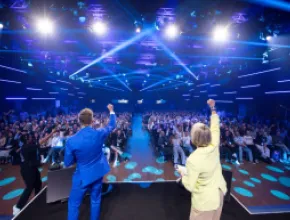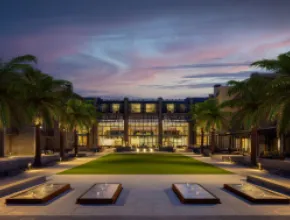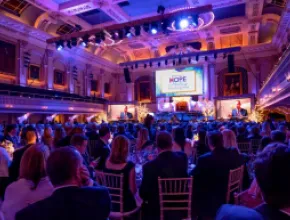Nicknamed the Land of Wa—a concept of harmony—Japan is a country where the past gracefully lives in the present. And nowhere is that more apparent than in its capital, Tokyo, where geishas can often be seen talking on their cell phones as they walk past ancient temples.
With a population of 12.4 million and dozens of cities within the megalopolis, a visit to Tokyo can seem daunting for first-timers, but Japanese hospitality and top-notch meeting venues make it a great place to do business. And, it’s easy to get to, as there are many daily flights between Narita International Airport and North American and other international destinations
Tokyo counts 3,600 hotels, ranging from deluxe to budget, including the traditional Japanese inns called Ryokans where guests sleep on tatami mats, enjoy a Japanese bath, and are served a breakfast of miso soup and rice. The city is also home to more than 300 meeting venues, including Tokyo Big Sight and Tokyo International Forum.
The Japanese love to keep their traditions alive and enjoy sharing them. Attendees can experience first-hand some of the country’s national pastimes between meetings, such as participating in a tea ceremony, a Japanese cooking class or an Ikebana flower arrangement workshop.
After meetings, attendees can have a few drinks alongside Japanese businessmen in one of the many Izakayas, Japan's version of a pub where men and women share small dishes and pitchers of beer.
If they’re still hungry, there’s no need to worry--with 110,000 restaurants to choose from, dinner won't be hard to find. Choose among ramen noodle joints, conveyor-belt sushi bars, inexpensive dinners with set meals, casual cafes, or the busy underground food courts found in most shopping malls, where the price of sushi rolls are cut in half at dinnertime.
Later in the evening, join Tokyoites in Roppomgi, Akasaka or Shinjuku for an evening of karaoke in private rooms—beware of the all-you-can-drink karaoke bars where each drink makes one feel like they’re getting closer to winning American Idol. Those seeking more traditional entertainment should head to a Noh performance, a form of theatrical drama that dates back to the 14th century.
Shopping is a serious pastime in Japan. Formerly used as the shogunate's mint, the Ginza area is now home to prestigious brands, including Tiffany jewelry, Shiseido cosmetics and Louis Vuitton. The area is also a good place to check out Japanese traditional gifts such as kimonos, sweets and stationery. Sony fans will like the Sony Building, which displays all of the company's latest products. For more high-tech shopping, head to the camera and computer stores of Shinjuku and the shopping center of Akihabara.
Other must-see areas include the Tokyo Station/Imperial Palace/Ginza area, the spiritual, cultural and business center of Tokyo. Asakusa, the district famous for its gastronomic and artistic focus since the Edo period, is worth a look.
The Japanese capital is also home to some interesting architecture. Tokyo Tower is a replica of the Eiffel Tower that’s taller than the original by just 32 feet. Another building of note is the Asahi Breweries head office complex, designed by French architect Philippe Starck. Temples are plentiful in the city and worth seeing for their traditional beauty.
This mix of modern and ancient elements make Tokyo what it is today: an amazingly diverse yet harmonious place to do business.





